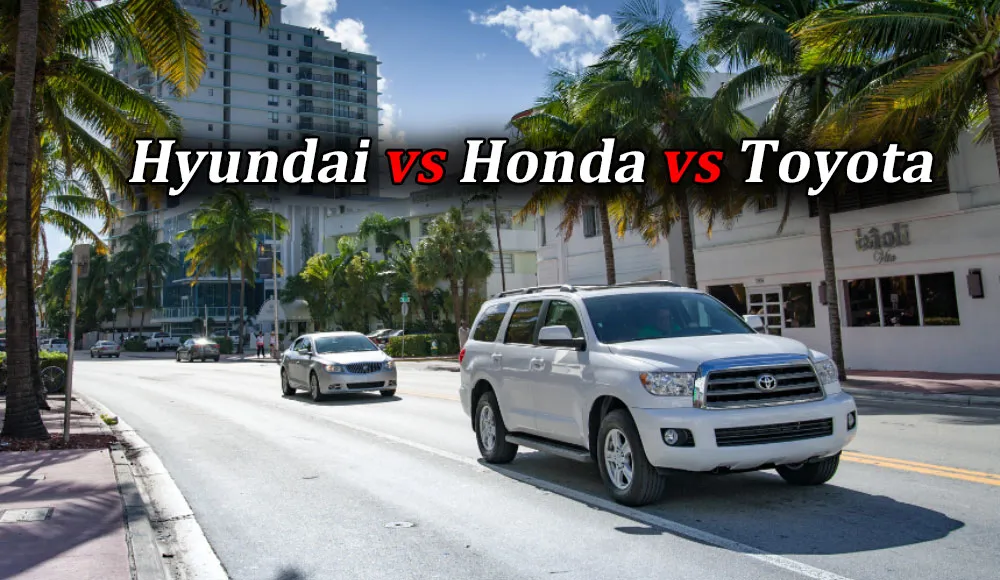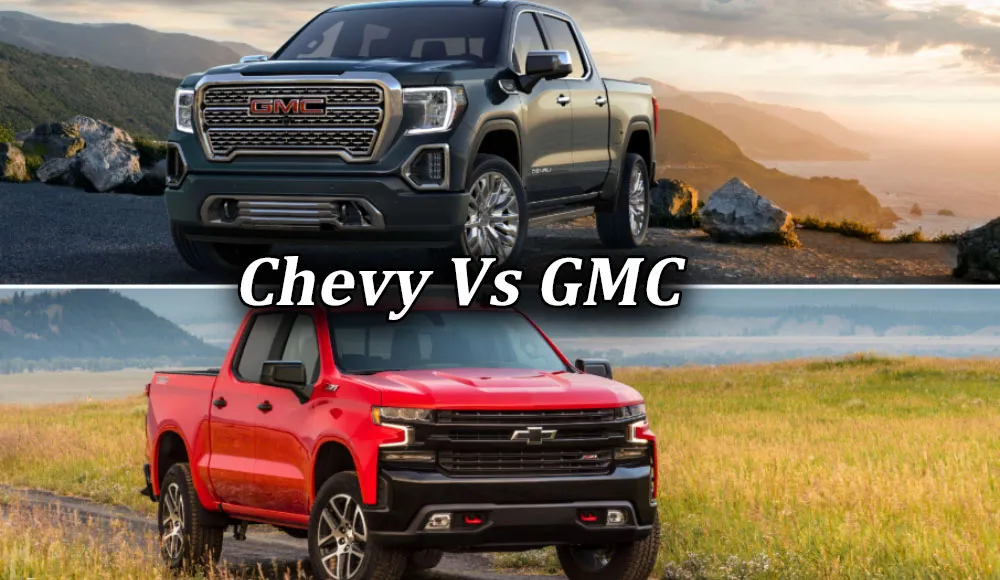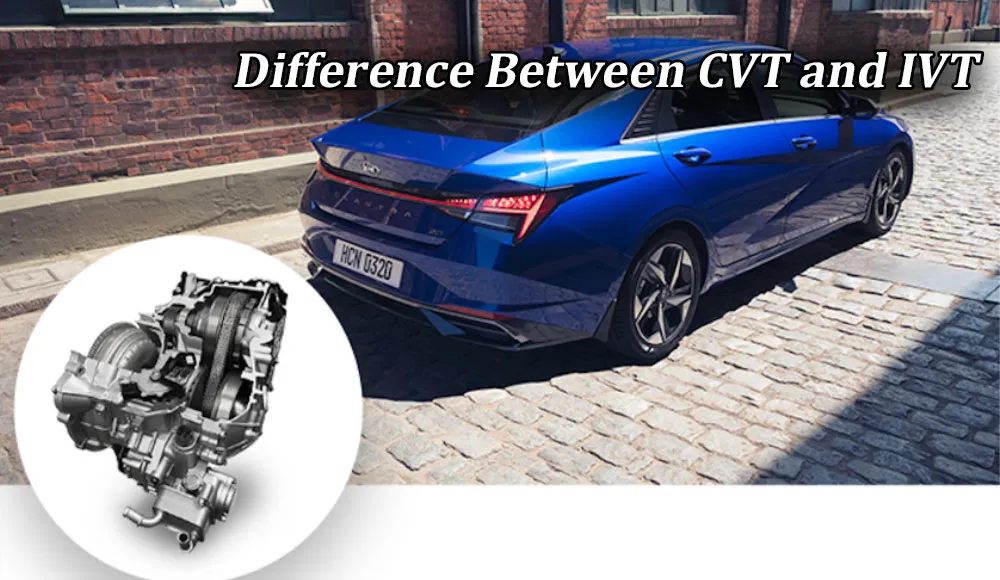Hi everyone! As a car enthusiast and blogger, I’ve often been asked to compare some of the biggest names in the automotive industry: Hyundai, Honda, and Toyota. These brands have carved out significant niches in the market, but how do they stack up against each other? I’ve decided to delve deep into this question, comparing these titans across various aspects to help you make an informed decision.

Historical Background and Evolution
Hyundai’s History and Growth
Hyundai, a South Korean giant, entered the automotive scene in the late 1960s. Initially, it focused on assembling cars from other manufacturers but soon developed its own models. Hyundai’s growth skyrocketed in the 2000s with its emphasis on quality improvements and design innovation, leading to a strong global presence.
Honda’s Journey and Innovations
Honda, a Japanese powerhouse, began as a motorcycle manufacturer in the late 1940s. It expanded into automobile manufacturing in the 1960s, quickly gaining a reputation for reliability and engineering excellence. Honda’s innovations, especially in engine technology, have set it apart in the industry.
Toyota’s Legacy and Market Influence
Toyota, another Japanese legend, has been a dominant force in the automotive world since the 1930s. Known for its manufacturing prowess and the Toyota Production System, it has consistently been a global leader in sales and innovation, particularly in hybrid technology.
Vehicle Lineup and Diversity
Hyundai’s Vehicle Range
Hyundai’s lineup is quite diverse, ranging from economical sedans like the Elantra to the luxurious Genesis. The brand has also made significant strides in SUVs and electric vehicles.
Honda’s Array of Models
Honda is known for its reliable sedans, like the Civic and Accord, and its CR-V SUV. It also ventures into the luxury segment with its Acura brand and has a strong presence in the hybrid and electric market.
Toyota’s Broad Lineup
Toyota offers a wide array of vehicles, from the popular Corolla and Camry sedans to the RAV4 SUV. It’s a leader in hybrid vehicles, with the Prius being almost synonymous with this category.
Performance and Reliability
Hyundai’s Metrics
Over the years, Hyundai has greatly improved its performance and reliability, rivalling and sometimes surpassing its competitors. Its vehicles are known for their smooth ride quality and improved engine performance.
Honda’s Reputation
Honda’s vehicles are celebrated for their longevity and minimal maintenance needs. They offer a balanced performance, focusing on fuel efficiency and driver experience.
Toyota’s Consistency
Toyota has set the benchmark for reliability. Its vehicles are known for enduring high mileage with few issues, making them a go-to for long-term investment.
Technological Innovations
Hyundai’s Advancements
Hyundai has made impressive strides in technology, especially in connectivity and driver-assist features. Its focus on futuristic design and tech is evident in its newer models.
Honda’s Innovations
Honda’s innovations are often under-the-hood, particularly in engine efficiency and hybrid technology. It also focuses on user-friendly technology and driver safety features.
Toyota’s Contributions
Toyota has been a pioneer in hybrid technology and continues to invest heavily in electric vehicles and sustainable technologies. Its focus on innovation is not just in its cars but also in its production methods.
Safety Features and Ratings
Hyundai’s Safety Initiatives
Hyundai has significantly upped its game in safety, with many of its models receiving top safety picks from the IIHS. It offers a robust set of safety features, even in its base models.
Honda’s Safety Technologies
Honda is renowned for its safety, with many of its vehicles featuring the Honda Sensing suite of driver assistance technologies. It consistently ranks high in safety ratings.
Toyota’s Safety Systems
Toyota’s commitment to safety is evident in its Safety Sense package, a standard in most of its models. It includes features like automatic emergency braking and adaptive cruise control.
Environmental Initiatives and Sustainability
Hyundai’s Eco-Friendly Efforts
Hyundai is making strides in reducing its environmental impact, with a growing lineup of electric and hybrid vehicles. It aims to become a leader in green mobility.
Honda’s Green Technologies
Honda has long been involved in developing eco-friendly vehicles, including hybrids, electric, and hydrogen fuel cell vehicles. It also focuses on reducing emissions in its manufacturing processes.
Toyota’s Leadership in Environmental Sustainability
Toyota is a pioneer in hybrid technology with the Prius and is advancing in hydrogen fuel cell technology. It has set ambitious goals for carbon neutrality and sustainable development.
Pricing and Value for Money
Hyundai generally offers competitive pricing, often undercutting its rivals while offering similar features. Honda’s vehicles are priced slightly higher but justify this with their reliability and resale value. Toyota’s pricing strategy balances quality with cost, making it a valuable investment in the long run.
Global Market Presence and Sales
Hyundai has a strong presence in Asia and is growing in North America and Europe. Honda is a well-established global brand, known for its motorcycles as well as cars. Toyota remains the global leader in sales, with a significant presence in almost every market.
Conclusion
Choosing between Hyundai, Honda, and Toyota comes down to personal preferences and priorities. Hyundai offers value for money and is quickly catching up in technology and reliability. Honda is a great choice for those looking for a blend of performance, reliability, and innovative technology. Toyota stands out for its unmatched reliability and leadership in environmental sustainability. Each brand has its strengths, making the competition not just about cars but about visions for the future of mobility. Stay tuned for more insights into the fascinating world of automobiles!


